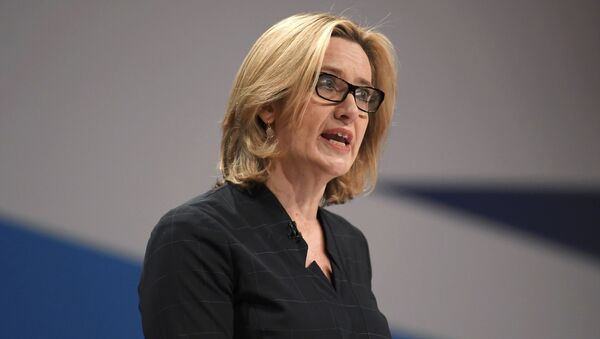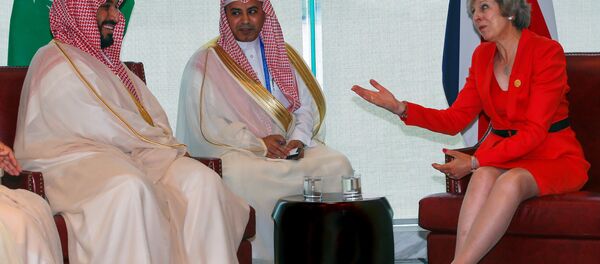MOSCOW (Sputnik) — Earlier in July, the London-based Henry Jackson Society think tank released a report saying that Saudi Arabia was the main source of overseas funding for radical-leaning mosques, preachers and literature in the United Kingdom.
"Overseas support has allowed individuals to study at institutions that teach deeply conservative forms of Islam and provide highly socially conservative literature and preachers to the UK’s Islamic institutions. Some of these individuals have since become of extremist concern," Rudd said in her written statement to the UK Parliament regarding the review of the Home Office into the nature, scale and origin of the funding of Islamic extremism in the United Kingdom.
Rudd added that the most common type and source of financial support for the countries extremist organizations in the United Kingdom come from small, anonymous public donations, with a majority of them originating in the country.
"Those giving may not know or support the organisations’ full agenda," Rudd stated, citing the Home Office’s report, adding that some of the organizations receive hundreds of thousands of pounds per year.
According to Rudd, the review proposes a comprehensive approach primarily against domestic sources of support for extremism, focused on raising awareness among the public and in financial services sector, as well as in grant making trusts and foundations. The review also suggests for the charities in the United Kingdom to declare overseas funding sources.
"For a small number of organisations with which there are extremism concerns, overseas funding is a significant source of income," she explained.
Since the beginning of 2017, the United Kingdom has faced a wave of terror attacks, including car-ramming assaults at London's Finsbury Park, on the London Bridge and the Westminster Bridge, as well as the blast that occurred at the entrance to the Manchester Arena at the end of US singer Ariana Grande’s concert.


